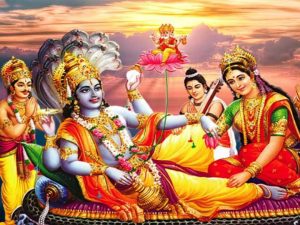
Nirjala Ekadashi is one of the most auspicious and significant Hindu festivals observed with great devotion and reverence. It falls on the eleventh day (Ekadashi) of the waxing phase (Shukla Paksha) of the Hindu month of Jyeshtha. In 2023, Nirjala Ekadashi will be celebrated on the 31st of May. This article delves into the essence of Nirjala Ekadashi, its cultural and spiritual significance, as well as the rituals and observances associated with it.
Tithi : 31st May 2023
The Significance of Nirjala Ekadashi: Nirjala Ekadashi holds a special place in Hindu traditions as it is considered the most stringent and challenging of all Ekadashi fasts. While devotees observe fasting on regular Ekadashis by abstaining from food, water, and grains, Nirjala Ekadashi takes it a step further, where devotees observe a complete waterless fast. It is believed that observing Nirjala Ekadashi helps in attaining the same benefits as observing all the Ekadashi fasts throughout the year.
Legend and Story Behind Nirjala Ekadashi: The significance of Nirjala Ekadashi is associated with a divine legend from the ancient scriptures. According to the Padma Purana, Maharishi Vyasa narrated the story of Bhima, the second Pandava brother. Bhima, known for his enormous appetite, could not observe the regular Ekadashi fasts due to his inability to control his hunger. To help him gain the benefits of Ekadashi, sage Vyasa suggested observing Nirjala Ekadashi, which involves fasting without water. Impressed by Bhima’s determination, Lord Vishnu blessed him with divine virtues and granted him liberation.
Rituals and Observances:
- Fasting: Devotees observe a strict fast without consuming any food or water throughout the day and night of Nirjala Ekadashi.
- Bathing and Prayers: On this auspicious day, devotees wake up early, take a holy bath, and wear clean clothes. They visit temples and offer prayers to Lord Vishnu, seeking his blessings.
- Puja and Vrat Katha: Special prayers and rituals are performed in homes and temples dedicated to Lord Vishnu. The Vrat Katha (narrative of the fast’s significance) is recited, emphasizing the greatness of observing Nirjala Ekadashi.
- Meditation and Chanting: Devotees engage in meditation, chanting sacred mantras, and singing devotional songs dedicated to Lord Vishnu. This helps in purifying the mind and connecting with the divine energy.
- Charity and Seva: Giving alms, offering food to the needy, and performing acts of charity are considered virtuous on this day. Devotees also engage in selfless service (seva) as a way of expressing gratitude and compassion.
Conclusion: Nirjala Ekadashi holds immense spiritual and religious significance for Hindus. By observing this strict waterless fast and engaging in prayers, meditation, and acts of charity, devotees seek purification, spiritual upliftment, and blessings from Lord Vishnu. The legend of Bhima’s dedication and the associated story symbolize the virtues of determination, self-control, and devotion. Nirjala Ekadashi serves as a reminder of the power of fasting, self-discipline, and the deep-rooted faith in the divine. May this Nirjala Ekadashi bring joy, spiritual growth, and blessings to all who observe it with utmost devotion and reverence.

